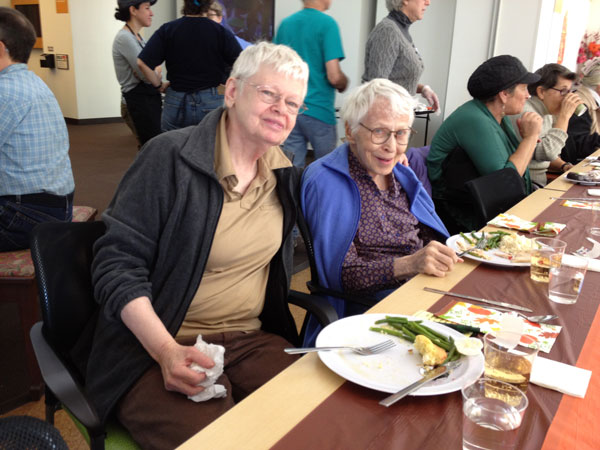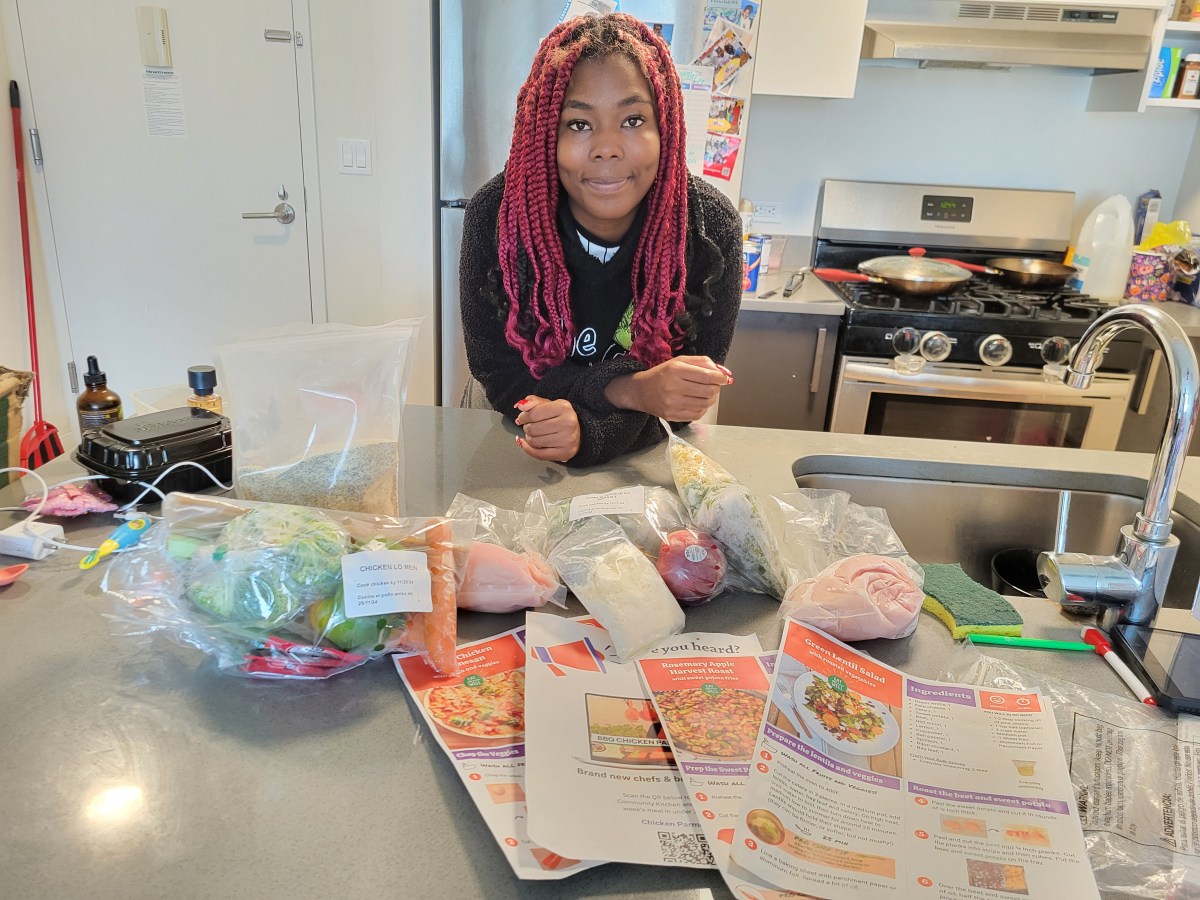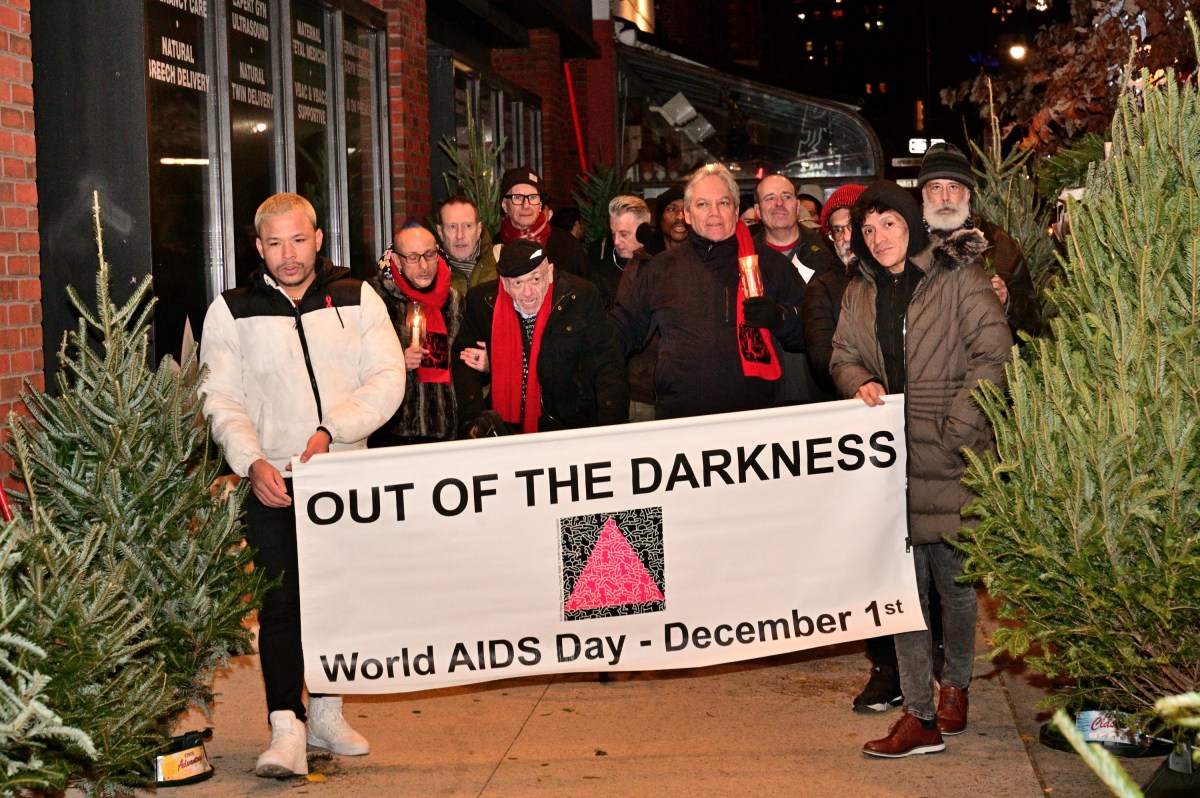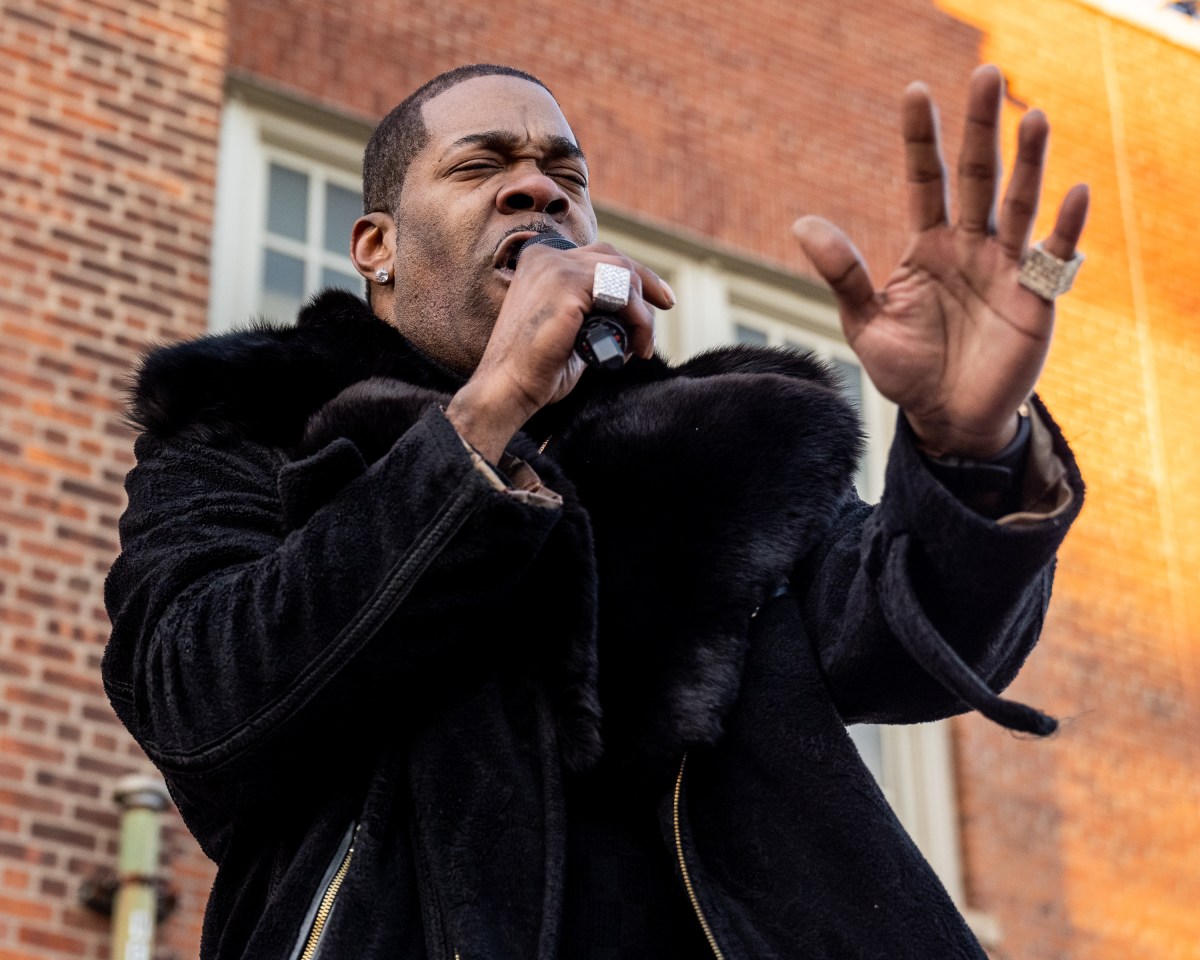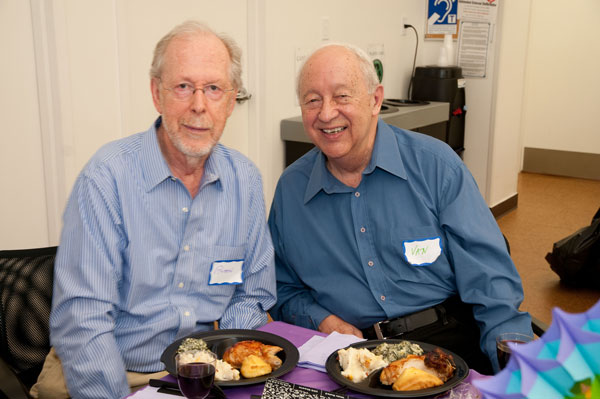
BY DEVIN MADDEN, MPH | Older adults who identify as lesbian, gay, bisexual or transgender (LGBT) have long had needs that were made invisible or ignored.
In 2012, the Department for the Aging (DFTA) and Services and Advocacy for GLBT Elders (SAGE) joined forces to change that. Two summers ago, Mayor Bloomberg’s call for an “age-friendly” New York City for its 1.3 million seniors made headlines. In response, DFTA funded eight Innovative Senior Centers (ISC) throughout the five boroughs.
SAGE’s ISC in Chelsea (also known as The SAGE Center) is serving LGBT seniors facing a unique set of health disparities. Among many culturally sensitive programs and activities for LGBT seniors over the age of 60, the center offers nutritionally balanced hot meals every Monday through Friday, from 5-6:30pm (for a softly suggested donation of $2). So far 1,100 participants have registered. Charles Cole, a diner and a SAGE Center receptionist, notes that, “For a lot of the people here, this will be their one healthy meal of the day.”
SAGE says that guests will never be turned away for lack of funds, and no judgment will ever be passed on their ability or inability to pay. SAGE also makes it a priority to connect seniors coming in for meals with additional food resources such as nutrition courses and green market vouchers.
The SAGE Center has the capacity to serve 150 meals per night — but there remain a large number of LGBT seniors facing the double risk of poverty and poor physical health outcomes, who need and deserve a hot, healthy meal and the companionship of community.
November 2012’s “The Aging and Health Report” (a collaborative effort of several LGBT and age-oriented organizations) found that while 91 percent of LGBT seniors surveyed engage in some sort of wellness activity, their health outcomes remain adverse. For senior gay and bisexual men, the risk of being in poor physical health is particularly high. Older lesbian and bisexual women experience higher risk for obesity and cardiovascular disease than heterosexual women of the same age demographic. Transgender seniors suffer from still poorer general health than lesbian, gay and bisexual seniors — with estimates suggesting that as many as 40 percent are obese.
Many older NYC adults live in poverty, and the risk is much greater for LGBT elders who have long faced employment discrimination and other forms of social stigma. DFTA has found that 70 percent of the seniors using SAGE programs live on less than $20,000 a year. For 35 percent of these seniors, that number falls under $10,000. Access to healthy foods has long been impacted by poverty. The added burden of social isolation that many LGBT seniors experience produces additional roadblocks on the path to nutritional health.
Since The SAGE Center opened, the dinners have attracted a growing crowd that comes for both the balsamic BBQ chicken and the camaraderie. Cole, when working the front desk, has the opportunity to greet fellow diners as they reach the 15th floor and enter the brightly painted yellow, green and orange-walled room. “I actually see people’s faces change,” he says. “They come in looking like they’re carrying the weight of the world, but are soon smiling when they see all of the people.” For many LGBT older adults, a beautiful center specifically for them to gather, dine and learn in may have been hard to imagine. The SAGE Center represents a movement to acknowledge and respect the lives of LGBT seniors. For the guests, this is just as important as the nutritional content of their meals.
With approximately five percent of the 158,000 adults over 65 years of age living in Manhattan reportedly identifying as gay, lesbian or bisexual, we cannot continue to overlook this population’s needs. Through the programs they offer and the constituents they reach, The SAGE Center has developed a model other organizations should consider emulating.
Devin Madden, MPH is a Project Manager at the Icahn School of Medicine at Mount Sinai in the Department of Health Evidence and Policy, coordinating a borough-wide coalition through Partnership for a Healthier Manhattan. She can be reached at 212-659-9559 or atdevin.madden@mountsinai.org. For more info, visithealthiernyc.org.
The SAGE Center is located at 305 Seventh Ave. (on the 15th floor, btw. 27th & 28th Sts.). Call 646-576-8669 or visit sageusa.org/thesagecenterfor info, menus and a calendar of programs. For SAGEWorks (a program that provides training, employment and job hunting tips), call 212-471-2247or visit sageusa.org/sageworks.



